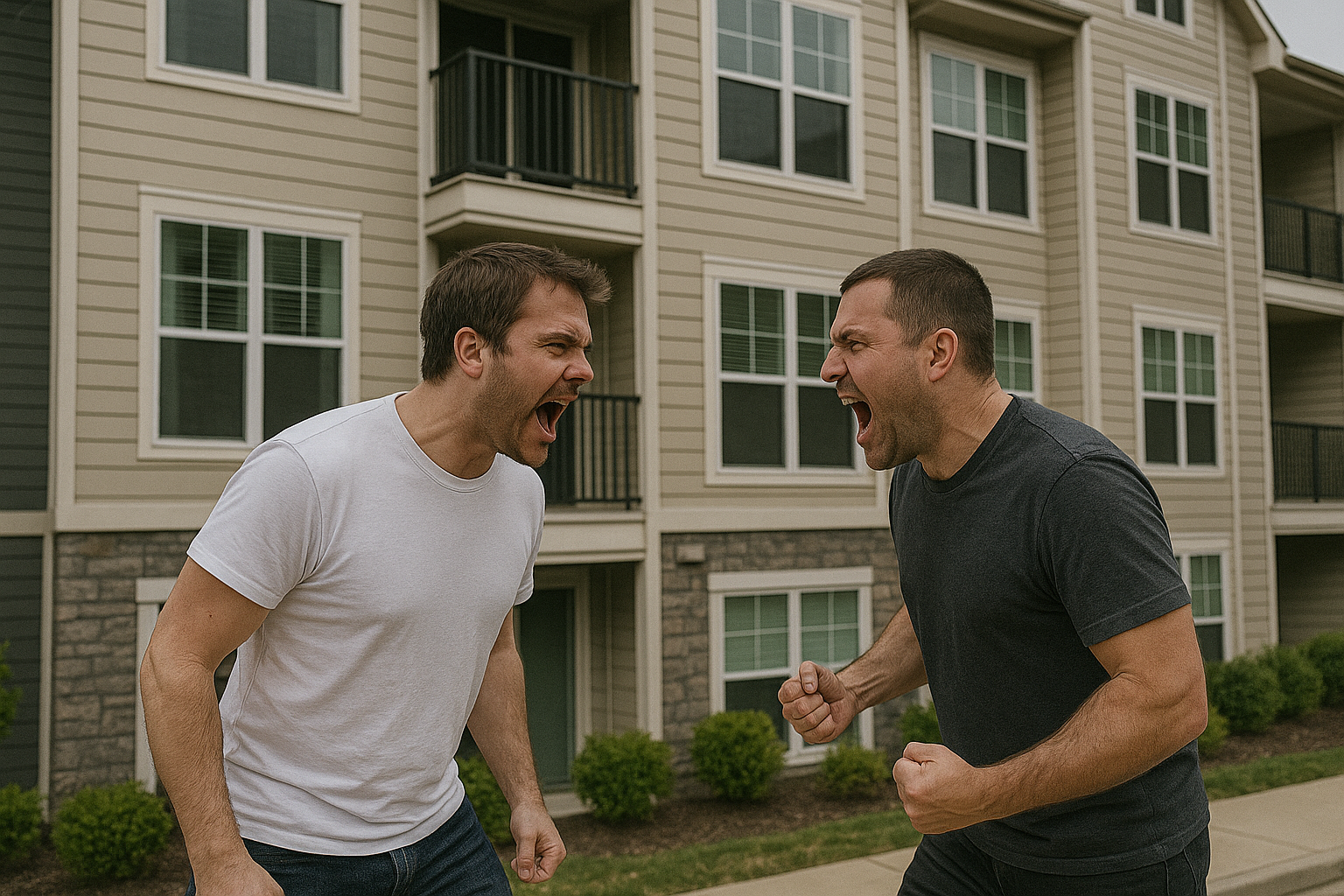How Trespassing Impacts Multifamily Property Security
CSAI Blog
READ NOW
Blog

By Kathleen Hannon, Senior Director of Communications, Cloudastructure. A former agency director, Kathleen has led messaging strategy for tech, security, manufacturing, and higher ed brands for more than a decade. Kathleen writes and produces Cloudastructure’s educational content for multifamily property professionals, including blogs, webinars, campaigns, case studies and white papers. She’s also the award-winning author of two young adult novels.
If you're a property manager, director, or multifamily executive, chances are you’ve dealt with some form of resident conflict. But what starts as a noise complaint can quickly escalate into an assault—or worse. And when it does, you’re the one holding the liability bag.
At Cloudastructure’s recent webinar Resident Altercations & Landlord Liability, Melinda McBeth, a landlord defense attorney at Offit Kurman, and Jen Free, Director of Sales at Cloudastructure and former multifamily operator, offered hard truths, practical tips, and legal strategies for handling conflict on-site.
Here’s what every property manager should know.

Rising insurance costs and shrinking carrier options in high-risk states make prevention and documentation more critical than ever.
-min.webp)
Forseeability is the cornerstone of liability: did anyone report these residents arguing before? How many times? As the property manager, what action did you take, and did you document that action?
Hint: if you didn’t write it down, it didn’t happen.
🔑 Best Practices from Melinda McBeth:
Keep in mind the Fair Housing Act may apply if the argument was about one or more protected classes, such as racial discrimination, religion, etc. Get in touch immediately with management and company counsel in such scenarios.

Resident altercations range from annoying to alarming—from incense complaints to stalking, assault, and even homicide.
“If you operate a multifamily property and haven’t been sued yet, brace yourself. It’s probably coming,” McBeth warned.
If you see or hear evidence of physical violence or credible threats, always call law enforcement and document the action taken.
Do NOT allow staff to physically intervene, but do:
.webp)
Federal protections under the Fair Housing Act and Violence Against Women Act (VAWA) require careful navigation:
While privacy is required by law in these cases, always make sure your staff is informed of any changes in status. A lone mistake can escalate a conflict or drive a lawsuit.
.webp)
If a picture is worth a thousand words, a video is the equivalent of War & Peace. While traditional security cameras are helpful, Cloudastructure’s AI Surveillance and Remote Guarding solution goes much further:
✅ Key Benefits:
“If I had AI surveillance back when I was managing, I could’ve avoided so many hours of reviewing useless footage—and probably a few lawsuits,” said Jen Free.
Today’s renters want to feel secure. Without visible safety measures like AI surveillance and live monitoring, a single incident can damage your brand, hurt occupancy, increase churn, and even potentially cost you millions.
✔️ What You Should Be Doing Now:
Want to watch the full Resident Altercations webinar? Click here.
-min.png)
Cloudastructure offers free site assessments to help you meet your duty of care and protect your tenants and team.
Book a Call today or visit https://www.cloudastructure.com/ to learn more.






